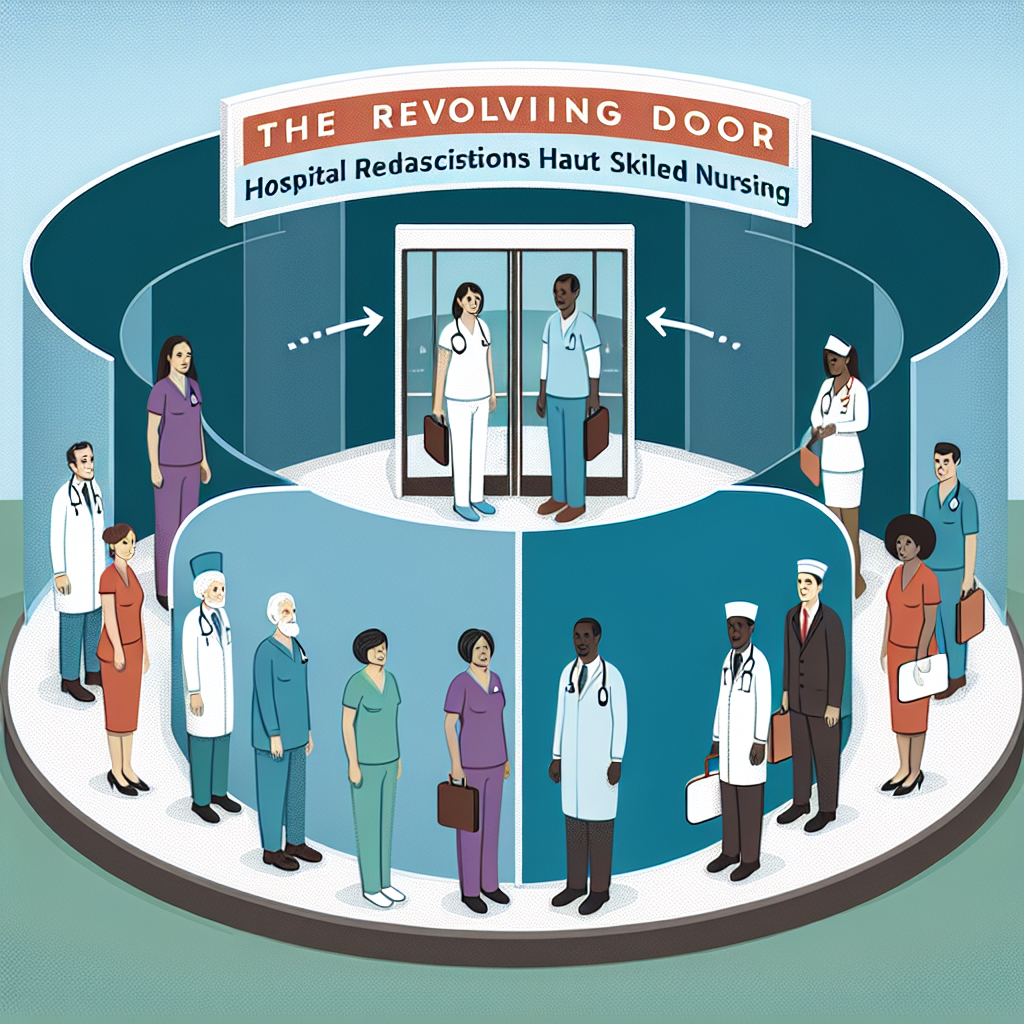New York, NY—In an alarming trend that underscores the challenges facing skilled nursing facilities (SNFs) and the broader healthcare system, a significant number of patients discharged from hospitals to SNFs are being readmitted to hospitals within 30 days. This revolving door scenario not only highlights issues of care quality and coordination but also raises serious concerns about the fiscal and health impacts on patients and healthcare providers alike.
A report released by the Centers for Medicare & Medicaid Services (CMS) found that nearly one in five Medicare patients discharged from a hospital to a skilled nursing facility had to be readmitted within 30 days, a statistic that underscores the severity of the issue and its implications on the healthcare system’s efficiency and costs.
The reasons behind these frequent readmissions are multifaceted, involving factors such as inadequate coordination between hospitals and nursing facilities, lack of sufficient care plans, and the complex needs of patients who require skilled nursing care. Experts argue that improved communication and better transitional care practices are essential to address this challenge.
Dr. Susan Mitchell, a senior scientist at Hebrew SeniorLife’s Hinda and Arthur Marcus Institute for Aging Research, emphasizes the significance of tailored care transitions, stating, “Transitional care is not one-size-fits-all. A tailored approach that truly understands the needs of the patient and the capabilities of the receiving facility is crucial in reducing readmissions.”
The financial implications are also considerable. For hospitals, high readmission rates not only result in penalizations under the Hospital Readmissions Reduction Program (HRRP) but also signify extra costs and potential harm to patient welfare. For SNFs, frequent hospital readmissions can affect their reputation, hinder partnerships with hospitals, and eventually lead to financial penalties.
In response to these challenges, some facilities have begun implementing comprehensive programs that emphasize enhanced training for staff, better patient monitoring, and improved communication channels with hospitals. These initiatives are designed to ensure that patients receive the appropriate level of care and to mitigate any issues that could lead to readmission.
Industry leaders and policy-makers alike argue that addressing the issue of hospital readmissions from SNFs requires concerted effort and innovation. From leveraging technology to improve patient monitoring and data sharing between hospitals and SNFs to revising reimbursement policies that reward the quality of care, the healthcare sector continues to search for solutions.
As the healthcare landscape evolves, the issue of hospital readmissions from skilled nursing facilities remains a pressing concern, prompting a reevaluation of existing practices and the exploration of new strategies to ensure that patients receive continuity of care that is both effective and efficient.


